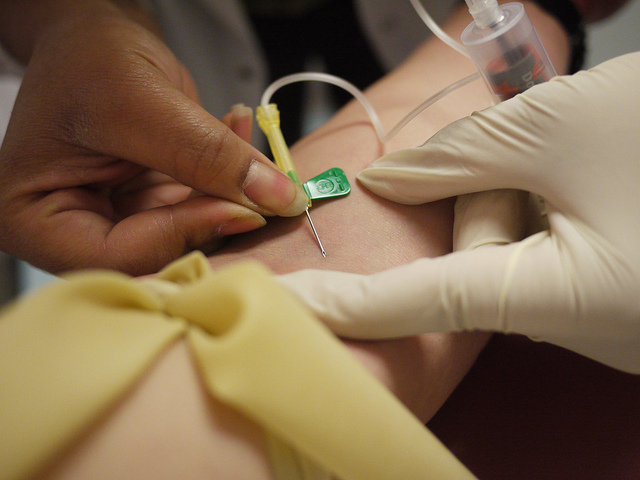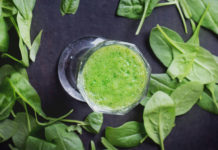Many factors contribute to determining your overall health; body weight, cholesterol levels, and blood pressure are a few. One test that I commonly run on my patients for a general marker on health status is a Homocysteine blood test.
Homocysteine is a naturally occurring amino acid in the blood. This amino acid is produced in the body during the methylation process. Homocysteine levels have been recognized as a potential risk factor and predictor for potential health problems and diseases such as cardiovascular disease, diabetes, cancer and even Alzheimer’s disease. The good news is that homocysteine levels can be controlled through proper diet and vitamin supplementation.
Homocysteine is an amino acid that your body makes from methionine, another amino acid. Methionine is found in many food sources rich in protein including:
- eggs
- fish
- chicken
- nuts
- some vegetables
Usually, homocysteine found in your blood gets converted into two substances: SAMe (S-adenosyl methionine) and glutathione. Both SAMe and glutathionine have wonderful health promoting effects. SAMe helps to prevent depression, liver damage, and arthritis. Glutathione is a powerful antioxidant which has many amazing benefits, including slowing down the aging process.
So, you really need your body to be able to efficiently convert homocysteine into SAMe and glutathione!
This metabolism of homocysteine is dependent on vitamin-derived cofactors that, if depleted, can cause high levels of homocysteine. This may eventually cause cell damage, with associated risk of health issues.
Specifically, conversion of homocysteine to SAMe requires the following nutrients: Folate, Vitamin B-12, Vitamin B-2, Zinc, TMG ( trimethylglycine–from choline), and Magnesium.
And conversion of homocysteine to glutathione requires the following nutrients: Vitamin B-6, Vitamin B-2, and Zinc.
Remember, when your body does not convert homocysteine into SAMe and glutathione, the level of homocysteine in your blood RISES! The higher the level, the more likely it will cause medical problems.
Some of the potential health issues that can result from high homocysteine levels are:
- Myocardial infarction (heart attack)
- Cerebrovascular accident (stroke)
- Cancer
- Diabetes
- Thyroid-related health issues
- Alzheimer’s Disease
- Parkinson’s Disease
- Depression
- Infertility
- Chronic Pain
- Digestive Disorders
How Do High Levels of Homocysteine Hurt Your Health?
Elevated levels of homocysteine in the blood can irritate blood vessels and cause damage. Hardening of the arteries is also a significant risk when homocysteine is elevated. Blood clots and hardening of arteries can cause stroke or a heart attack. Recent studies hypothesize that homocysteine has a toxic effect on the cells that make up the innermost level of blood vessels. Blood vessel damage can cause clots and lead to potentially fatal complications including stroke and heart attack. Venous blood clots occur in approximately 1 in 1000 individuals each year, and some studies have suggested that elevated levels of homocysteine roughly double the risk of developing a venous thrombosis (blood clot).
Another major risk factor is complications during pregnancy. Elevated levels of homocysteine have been observed more frequently among women with conditions such as preclampsia (elevated blood pressure), placental abruption, recurrent pregnancy loss, and small, low-birth-weight deliveries. Deficiencies in vitamin B12 and folate have also been implicated in the development of such placental diseases. Neural tube defects have been observed more commonly in women that have abnormal homocysteine metabolism.
Elevated levels of homocysteine can also lead to increased pain and inflammation. High blood levels of homocysteine promote higher levels of two chemicals in the body that promote inflammation; arachidonic acid and prostaglandin. Chronic inflammation can cause damage to tissues, arteries, joints, and nerves.
Moise Desvarieux, an inflammation researcher at Columbia University Mailman School of Public Health speaks on the importance of controlling these risk factors, “In recent years, we’ve come to accept that inflammation plays a role in many chronic diseases, but it’s about an imbalance, too many pro-inflammatory chemicals and not enough anti-inflammatory ones.” With elevated levels of homocysteine in the blood, too many inflammatory chemicals are beating out the balancing anti-inflammatory chemicals and wreaking havoc on the body’s systems.
What is a Healthy Homocysteine Number?
Most clinical testing laboratories consider a homocysteine value of less than 11.0 micromoles per liter as being healthy, while some allow slightly higher readings. The Life Extension Foundation and other experts believe, however, that the upper level of what is considered a “normal” reading is much too high for optimal health.
Studies indicate that those with values greater than 6.5 micromoles per liter are at increased risk of artherosclerosis, heart attack, and stroke.
Age, prescription drug use, declining kidney function, smoking, alcohol use, obesity, and declining levels of physical activity can contribute greatly to the increased levels of homocysteine in blood. Inheriting a genetic mutation known as MTHFR C677T is considered one of the most important genetic determinants of blood homocysteine values in the general population. At least one copy of this genetic variant is inherited by as many as half of all Americans, which can impair their ability to fully activate folic acid to B vitamin forms. Individuals who inherit the gene variant from both parents have a 14-21% higher risk of heart disease than those who do not.
How To Prevent or Reduce High Homocysteine Levels
Currently there are no patented drugs to lower blood levels of homocysteine. Without a patented drug, many pharmaceutical companies do not feel it necessary to spend money to educate doctors or increase public awareness. Instead, it is up to us individually to make healthy lifestyle choices to decrease the levels and reduce our risks. Some, but not all, doctors will test for this blood level during a routine blood exam to take a deeper look at symptoms patients are exhibiting. If you have not had this test, ask your doctor for it.
As mentioned earlier, there are several nutrients involved in the breakdown of homocysteine in the blood. By increasing the intake of these nutrients it can help to promote lower levels of homocysteine. An ultra high-grade, professional formula (which contains all of the needed nutrients) I recommend is Diamond Nutritionals’ Foundation Vitamins. This formula contains the full spectrum of nutrients in the appropriate amount and balance. Foundation Vitamins and Minerals are free of dairy, gluten, wheat products, shellfish, eggs, tree nuts, and peanuts. All Diamond Nutritionals products are professional, high-grade supplements made in America.
The right diet and lifestyle can help reduce high levels of homocycteine. Here’s what you can do to get started today:
- Try to make vegetables at least 50% of your diet.
- Eat mainly healthy fats and oils
- Eat high quality protein such as organic eggs, wild fish, nuts, seeds, legumes, and dark green vegetables.
- Don’t use tobacco products
- Work at reducing stress
- Don’t drink more than one cup of caffeinated coffee or tea a day
- Limit salt intake. When salt is used, use small amounts of mineral-dense sea salt
- Limit alcohol to one glass of beer or wine daily.
Along with a healthy diet, include a normal exercise regimen to help your body absorb nutrients properly, improve metabolism, and boost cardiovascular health. As always, before beginning any new diet, exercise, or vitamin supplement regimen that drastically changes your lifestyle consult a physician.
—
Photo credits:









